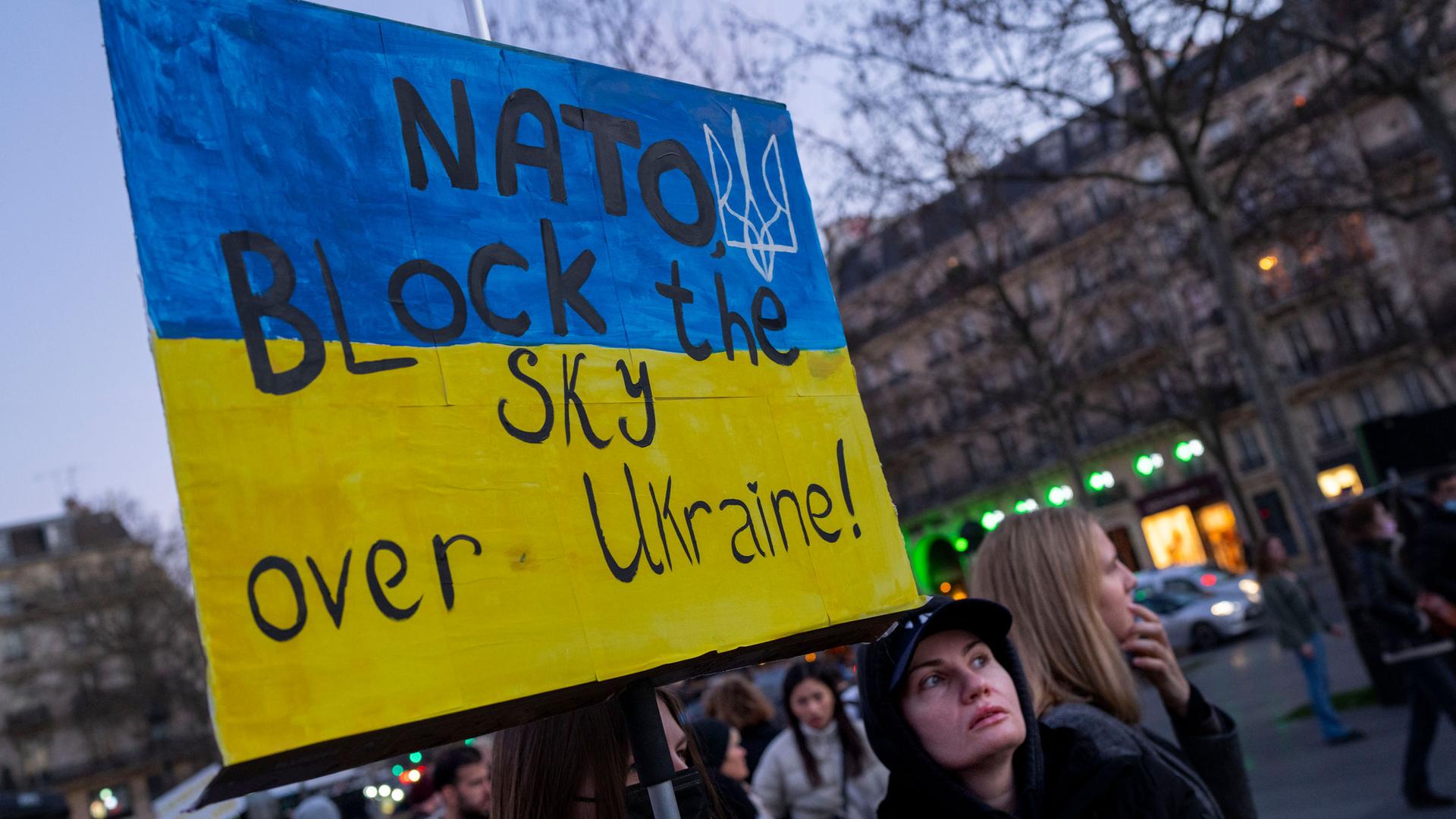As Russia continues to bomb Ukrainian cities and the humanitarian crisis deepens, Ukrainian President Voldomyr Zelenskiy has called repeatedly for a “no-fly zone.“
A no-fly zone would protect Ukrainians,as well as Ukrainian military installations, from destruction from the air by Russian bombs, explained Rachel Rizzo, a senior fellow at the Atlantic Council’s Europe Center.
The US has imposed no-fly zones in the past in Iraq and Bosnia, for example.
But while the US and many other Western countries have backed Ukraine with weapons shipments, the US and NATO have shown no interest in sending troops into the country and have rejected Zelenskiy’s repeated pleas to establish a no-fly zone, for fear of triggering a wider war.
Related: Russia’s invasion in Ukraine ‘is far from done,’ retired Lt. Col. Alexander Vindman says
A no-fly zone would basically commit NATO to shoot down all Russian planes that violate the airspace within the no-fly zone, Rizzo said.
“In essence, NATO would be committing to shoot down Russian planes. And a no-fly zone can’t just be established, it has to be enforced.”
“In essence, NATO would be committing to shoot down Russian planes. And a no-fly zone can’t just be established, it has to be enforced. And if NATO’s the one enforcing it, NATO’s then getting involved directly in this war in Ukraine. The worry, then, is that we would see a swift and severe escalation on the side of Putin and his military,” she said.
At this point, top Western leaders are not seriously considering a no-fly zone, Rizzo explained, because “the risk of escalation at this point is too great,” she said.
Related: ‘The Kremlin really controls the armed forces of Belarus,’ analyst says
NATO allies don’t want to give Russian President Vladimir Putin an excuse to indiscriminately bomb further, and they don’t want to give him an excuse “to test our collective defense measures on NATO’s eastern front, mainly Poland and the Baltics,” Rizzo said.
To listen to the full interview, click on the player above. AP contributed to this report.
